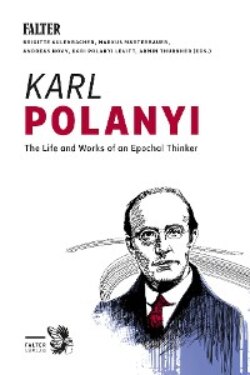Читать книгу Karl Polanyi - Группа авторов - Страница 14
Why Polanyi ought to be considered the personality of the century
ОглавлениеKarl Polanyi deserves to be assigned a central role in the 21st century because his thinking is helpful in the search for constructive, solidarity-based alternatives. Polanyi is, of course, not the only pioneering, unconventional thinker to look to in these times of massive change for a comprehensive critique of the system and a concrete diagnosis of the times. The aim is not to pit Polanyi against Marx, Weber, Adorno, Keynes, or many others. Thinking in unconventional ways means assuming distinct perspectives in order to avoid becoming disoriented in the diversity of current dynamics. That said, there are many good reasons for the renaissance of Polanyi: his work invites us to reconceive the relation between the economy and society. Polanyi helps us discern the dangers facing a society in which material self-interest is considered the only valid social interest: Is it worthwhile? Does it pay off? Can we afford this and that? Moreover, Polanyi helps us to once again embed such economic reflections in the greater social and ecological context. It is the only way of turning the social needs of the many into the main driver of the economy, instead of orientating it towards catering for the individual interests of the few.
And, finally, Polanyi also invites us – not least based on his own biography – to return to the beginnings of the 20th century and learn from history: from the struggle for democracy and women’s rights, for the welfare state and against war. The great victories (against fascism and in building international understanding) and gradual successes (the many small changes in legislation, changed routines and cultural givens such as increasing progress toward gender equality, the broad acceptance of homosexuality, the growing responsiveness to the needs of the disabled) may serve as a source of inspiration for confronting the increasingly powerful right-wing populists and authoritarian forces. Indeed, it might just all change for the better: ‘[…] creating more abundant freedom for all’ (Polanyi 1944/2001, p. 268) is possible. ‘Freedom for all’ remains the ultimate goal of concrete utopias.
References
Robert Boyer in the last part (“Karl Polanyi – Wirtschaft als Teil des menschlichen Kulturschaffens”, Engl.: “Karl Polanyi – The economy as a part of human cultural activity”) of the film by Ilan Ziv (“Der Kapitalismus” – “Capitalism”), which aired on the French/German public TV station Arte.
Polanyi, Karl (1944/2001): The Great Transformation: The Political and Economic Origins of Our Time. Boston: Beacon Press.
